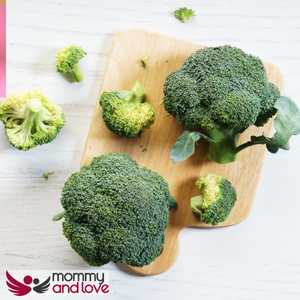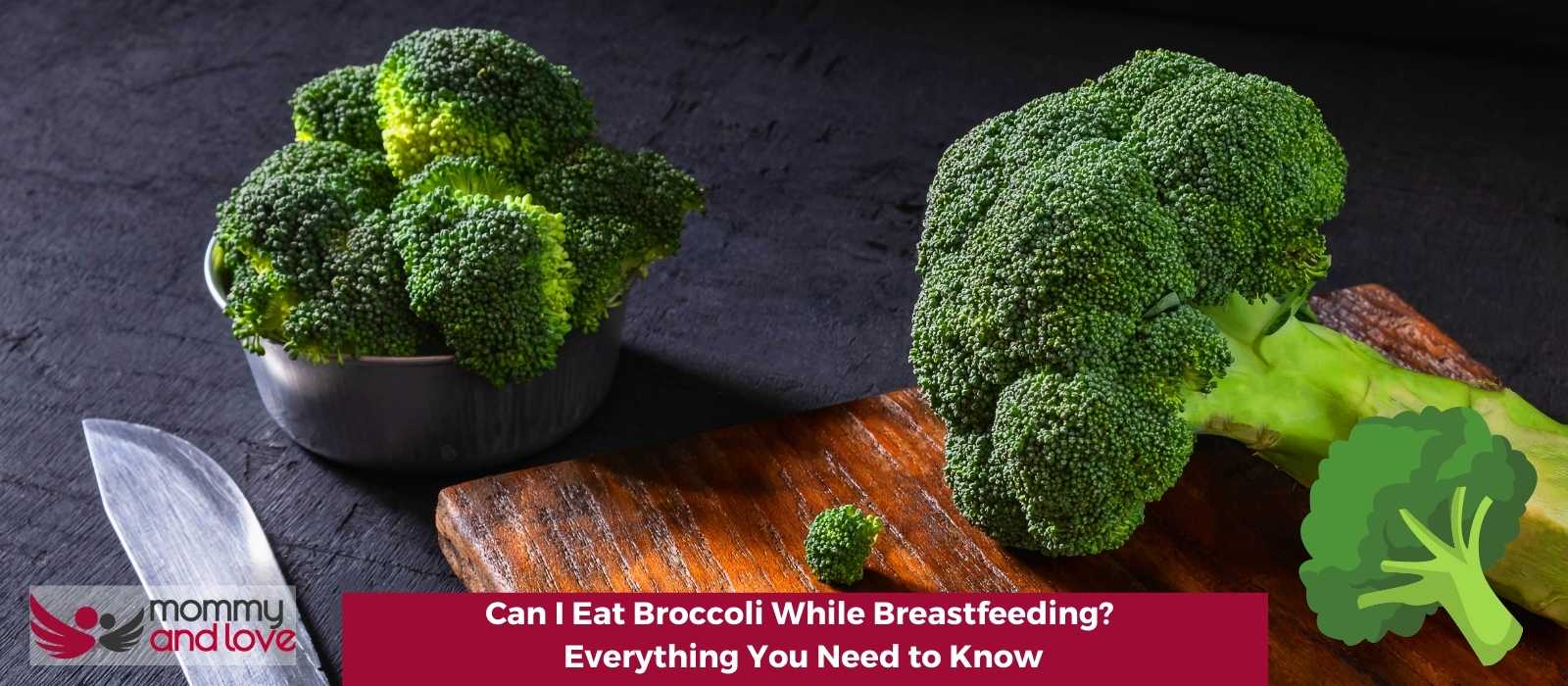There’s a lot of information about what to avoid eating while breastfeeding, such as mercury-rich raw seafood and soft cheeses made from unpasteurized milk. But there’s such a thing as too much of a good thing when it comes to broccoli.
Are you a breastfeeding mom who’s wondering if it’s safe to eat broccoli? You’re not alone.
While most vegetables are considered safe to eat while breastfeeding, broccoli is one that some moms choose to avoid.
In this blog post, we’ll take a look at eating broccoli while breastfeeding and what other foods you should avoid.
So, can you eat broccoli while breast feeding? The answer is yes. Broccoli is a healthy and nutritious vegetable that can provide important nutrients for the well-being of both the mother and baby. It may also help to boost the mother’s milk supply.
Is Broccoli Good for Breastfeeding Mothers?

Broccoli is a nutritional powerhouse that is often overlooked. For one, it is a good source of essential fatty acids and healthy fats, which are important for infant growth and brain development.
In addition, it is packed with vitamins and minerals, including iron, calcium, and vitamin C. It is also high in fiber, which can help to prevent constipation and can help keep the gi tract healthy.
Furthermore, broccoli contains antioxidants that can protect against cell damage.
Given all of these health benefits, it is clear that broccoli should be a staple in any healthy diet.
Ultimately, whether or not broccoli is good for nursing mothers depends on the individual’s dietary restrictions.
What Are the Concerns About Broccoli While Breastfeeding?
Some mothers worry that eating broccoli will give their baby gas. It’s true that cruciferous vegetables like broccoli can cause passing gas in both adults and babies.
However, it’s also true that baby gas is caused by many things, such as teething, dairy products like cow’s milk, eating too fast, or a reaction to a new foods and milk products.
Breastfeeding moms can eat broccoli without worrying about giving their baby gas. In fact, there’s no need to avoid this particular food while breastfeeding.
Every baby is different, and some babies may be more sensitive than others to the gases produced by such foods. If you notice that your baby seems gassy after you eat broccoli or another cruciferous vegetable, it’s probably just a coincidence.
At the very beginning of experiencing gas, you can drop broccoli from your diet and add it back after a few weeks.
Can Broccoli Affect the Quality of Breast Milk?
Broccoli has been shown to have a positive effect on the quality of breastmilk in breastfeeding moms. The nutrients in broccoli are transferred to the milk, and this can improve the overall health of the baby.
In addition, broccoli has been shown to increase the level of immunoglobulin A in breastmilk. Immunoglobulin A is an antibody that helps protect babies from infection. Therefore, it may help to reduce the risk of illnesses in breastfeeding infants.
Additionally, broccoli contains a compound called sulforaphane, which has anti-inflammatory properties. This may help to reduce the symptoms of conditions such as eczema and allergies in both babies and nursing moms.
Does Broccoli Have an Effect on Breast Milk Supply?

Yes. Broccoli has long been known to be a nutritious vegetable, and recent studies have shown that it may also have benefits for nursing mothers.
It is a good source of calcium, iron, and vitamins A and C, all of which are important for breast milk production.
In addition, it contains a compound called sulforaphane, which has been shown to increase milk production in animals.
While more research is needed to confirm these effects in many women, broccoli is a safe and healthy food for lactating mothers. And while it may not be as good as other galactagogues that are used in many cultures to boost milk supply, a little help is always welcome.
Can Broccoli Make a Breastfed Baby Gassy?
No. According to La Leche League International, even if food causes gas in many mothers, this does not imply that the baby will experience gas as well. What this means is that any food can’t have the same effect on the baby as it has on the mother who ate the food directly.
Breast milk is produced from the parent’s blood supply, and we know that the dietary qualities that cause gas do not cross into human’ milk and bloodstream.
What Foods and Vegetables Should I Avoid While Breastfeeding?
While there are many healthy and nutritious foods that are great for new mothers, there are also certain foods that should be avoided.
- For instance, you want to avoid gassy foods such as Brussels sprouts, cabbage and other cruciferous vegetables if you feel gassy after eating them. These vegetables promote gas and discomfort.
- Most doctors also recommend staying away from acidic foods because they can cause a host of problems for both mother and baby.
- Raw food is always risky for lactating women to eat. When you were pregnant, you were advised to stay away from anything raw because it could affect your unborn child.
While the rules are different now that you’re breastfeeding, raw fish (or even certain sushi), to a certain extent, may contain dangerous bacteria and other contaminants that can lead to food-borne illnesses and food poisoning. We’ve done a guide to eating raw oysters while nursing and eating rare meat while nursing. Also, it is highly recommended for breastfeeding mothers to avoid high-mercury fishes such as swordfish, king mackerel and southern bluefin tuna, read our guide on eating tuna whilst nursing. - Other food to avoid excessive amounts of spicy foods with strong flavors because they can cause indigestion and heartburn, making it difficult to maintain a healthy milk supply.
By avoiding these specific foods in your diet, you can help ensure that both you and your baby stay happy and healthy. And generally, breastfeeding women should eat foods that are considered healthy and nutritious.
Conclusion On Eating Broccoli Whilst Nursing
However, if you find that broccoli makes you gassy, you may want to avoid eating it while breastfeeding. Additionally, there are some other foods that breastfeeding mothers should avoid, such as cabbage and other cruciferous vegetables if they are gassy.
By following these simple guidelines, you can ensure that both you and your baby are getting the nutrition they need.

This article was written by Sandra Baker – full time writer and the mother of four amazing kids (including twins!)
She’s also a breastfeeding counselor and has spent years helping new parents learn how to care for their children. When she’s not writing or caring for her children, Sandra likes to spend time reading and taking walks with her husband.




